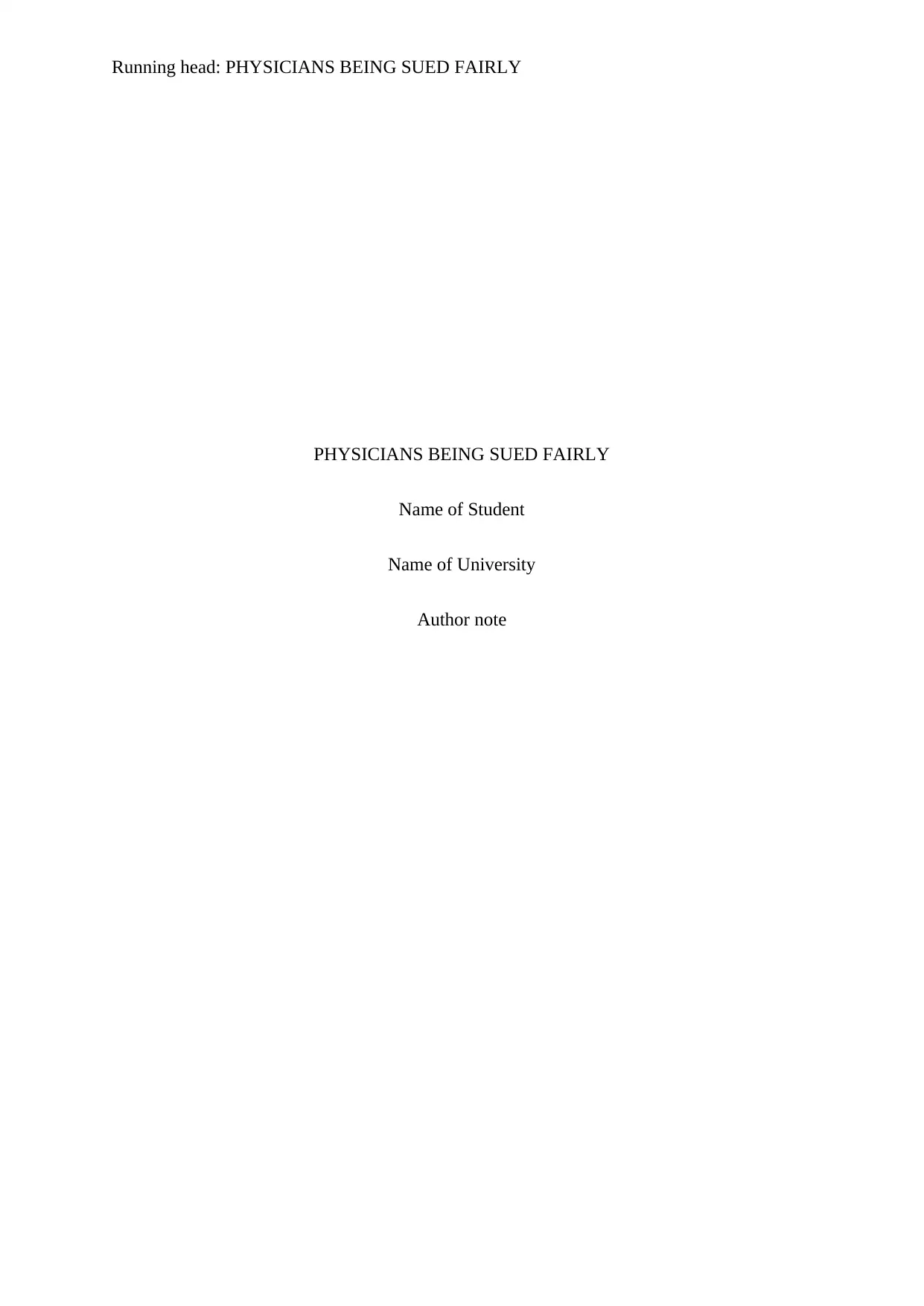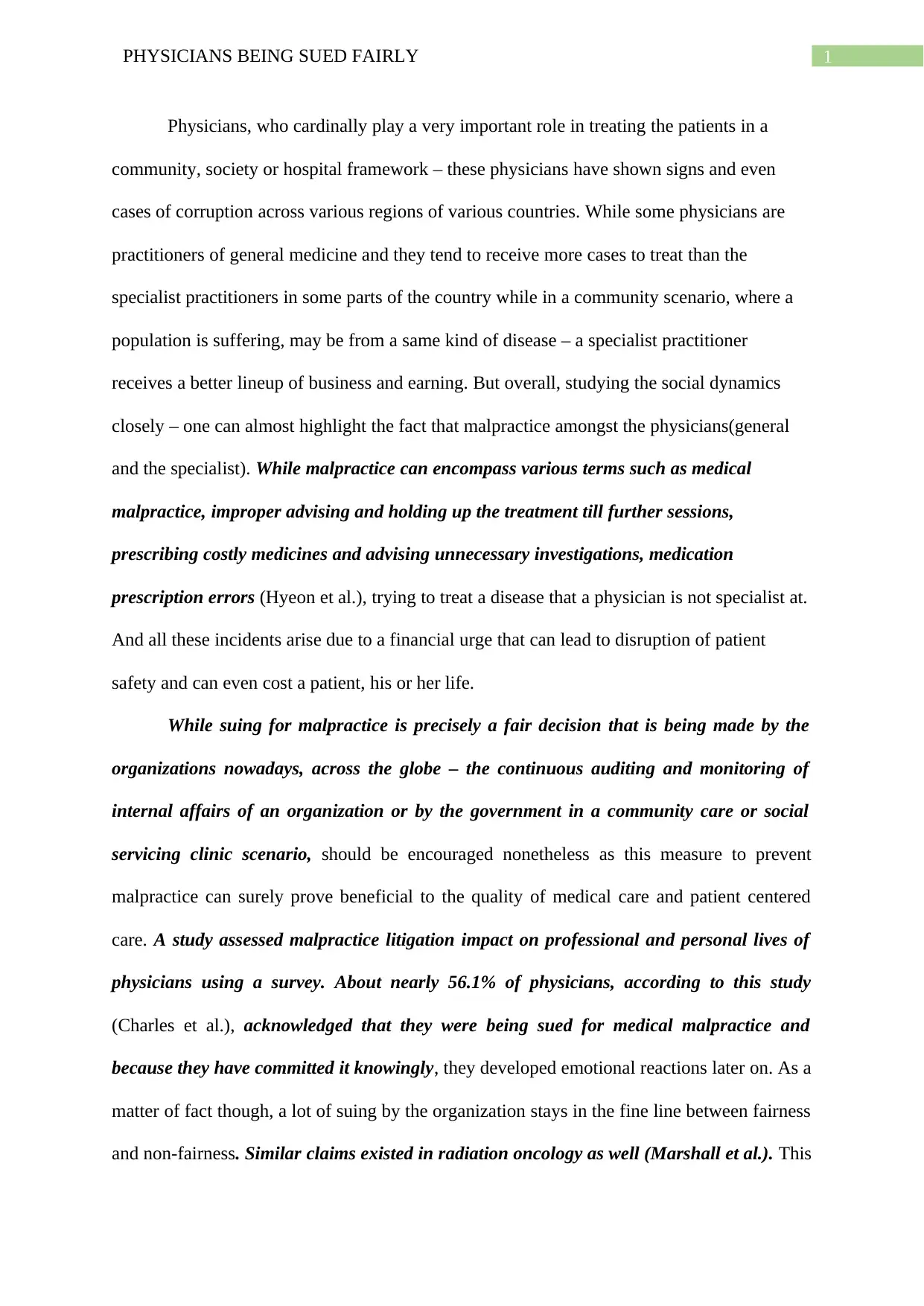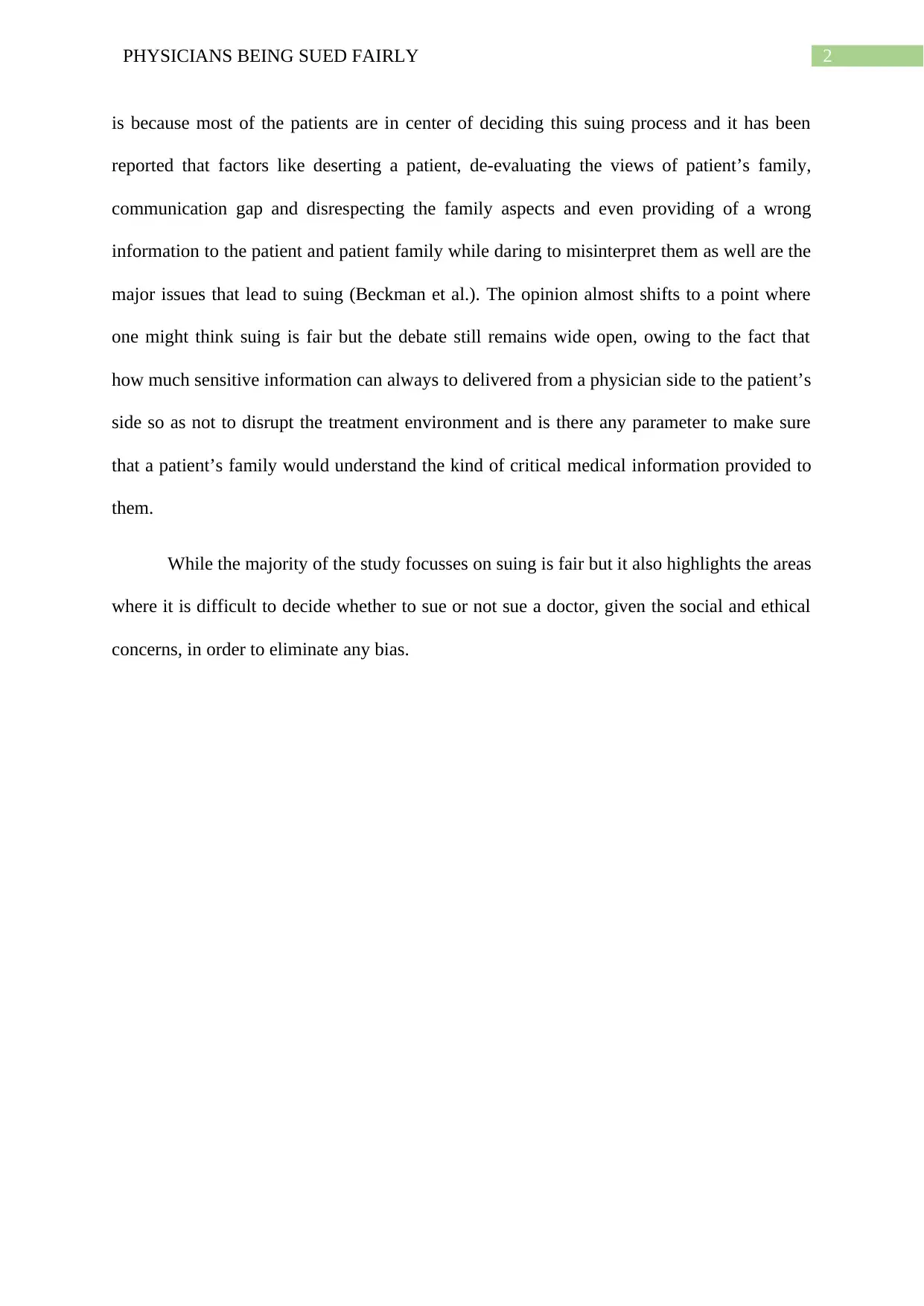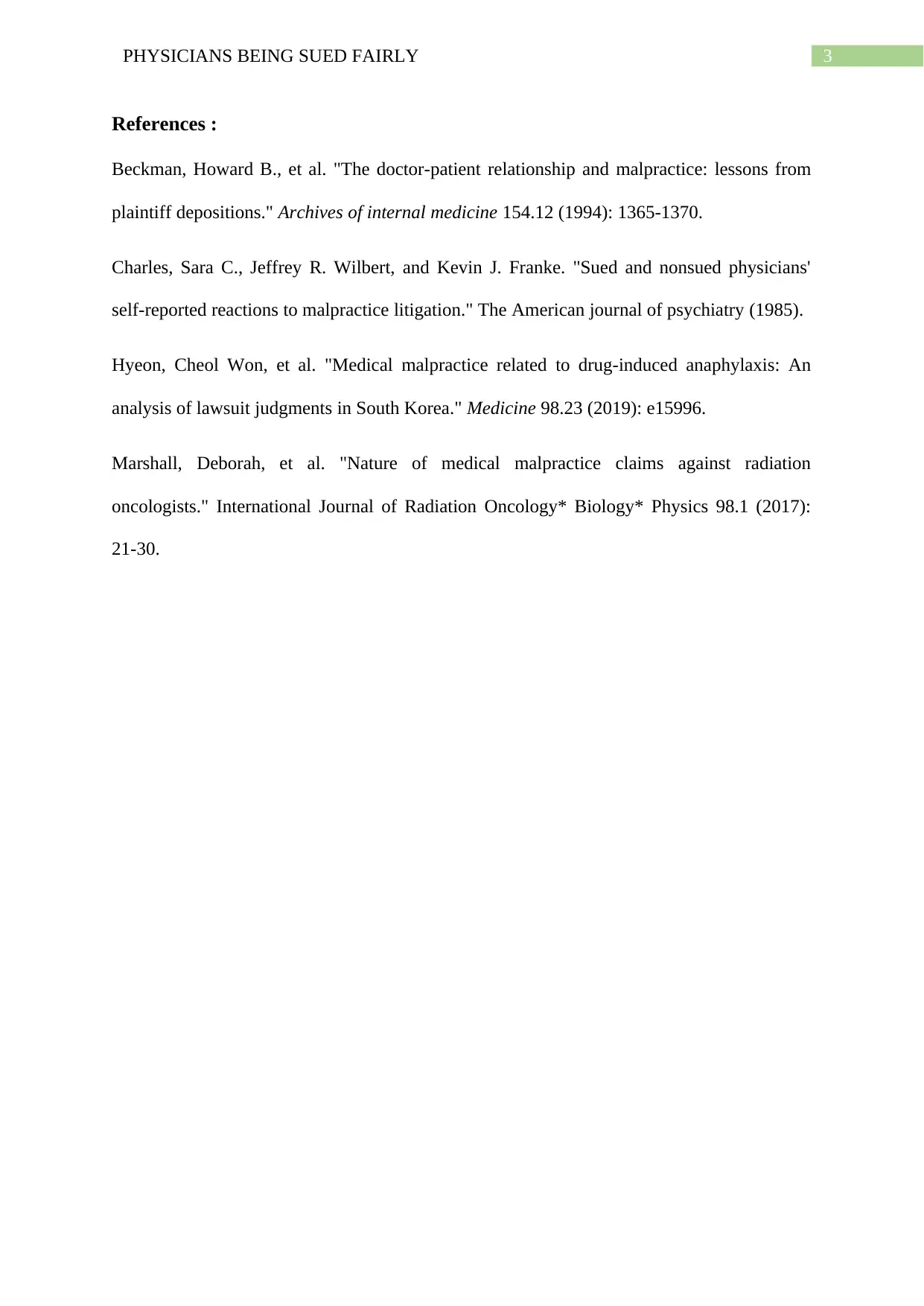A Critical Analysis: Fairness of Suing Physicians for Malpractice
VerifiedAdded on 2022/09/18
|4
|747
|28
Essay
AI Summary
This essay critically examines the fairness of lawsuits filed against physicians, exploring the complexities of medical malpractice within various healthcare settings. It highlights the potential for corruption and financial incentives influencing medical decisions, leading to patient safety concerns. The essay discusses the ethical considerations of suing physicians, the impact of malpractice litigation on physicians' professional and personal lives, and the significance of patient-physician relationships. It references studies that assess the impact of malpractice litigation, emphasizing factors that contribute to lawsuits, such as communication gaps, disrespect, and the provision of inaccurate information. While acknowledging the need for accountability, the essay also raises questions about the sensitivity of medical information and the potential for bias in determining the fairness of lawsuits. The essay concludes by emphasizing the importance of continuous auditing and monitoring to prevent malpractice and improve the quality of medical care. The essay references studies by Beckman, Charles, Hyeon, and Marshall to support the arguments.
1 out of 4











![[object Object]](/_next/static/media/star-bottom.7253800d.svg)